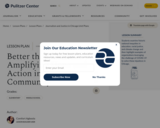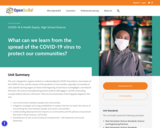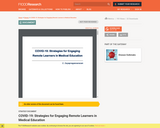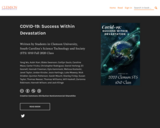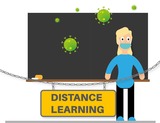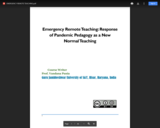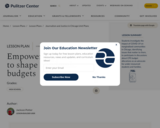
This resource is a video abstract of a research paper created by Research Square on behalf of its authors. It provides a synopsis that's easy to understand, and can be used to introduce the topics it covers to students, researchers, and the general public. The video's transcript is also provided in full, with a portion provided below for preview:
"This video is based on a preprint. Preprints are preliminary reports that have not undergone peer review. They should not be considered conclusive, used to inform clinical practice, or referenced by the media as validated information. As the COVID-19 pandemic wages on, scientific research is uncovering multiple forces that alter the spread of the disease. One enhancing factor could be air pollution. Researchers at the University of Cambridge recently linked COVID-19 to air pollution levels in England, where more than 45,000 patients have died of COVID-19. Initial findings revealed that regional variations in nitrogen oxide and ozone in particular could predict COVID-19 cases and deaths. The risk of infection was found to be increased by exposure to particulate matter (PM). Such pollution can lead to increased inflammation in the lungs or even help carry the virus that causes COVID-19 across large distances..."
The rest of the transcript, along with a link to the research itself, is available on the resource itself.
- Subject:
- Applied Science
- Health, Medicine and Nursing
- Material Type:
- Diagram/Illustration
- Reading
- Provider:
- Research Square
- Provider Set:
- Video Bytes
- Date Added:
- 11/12/2020

